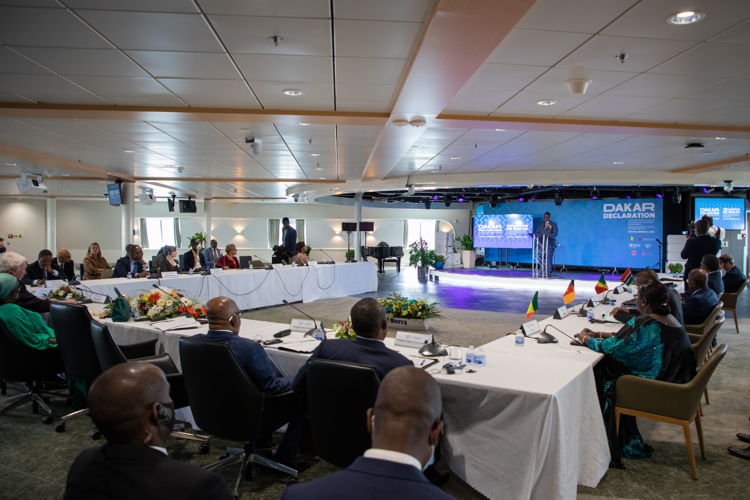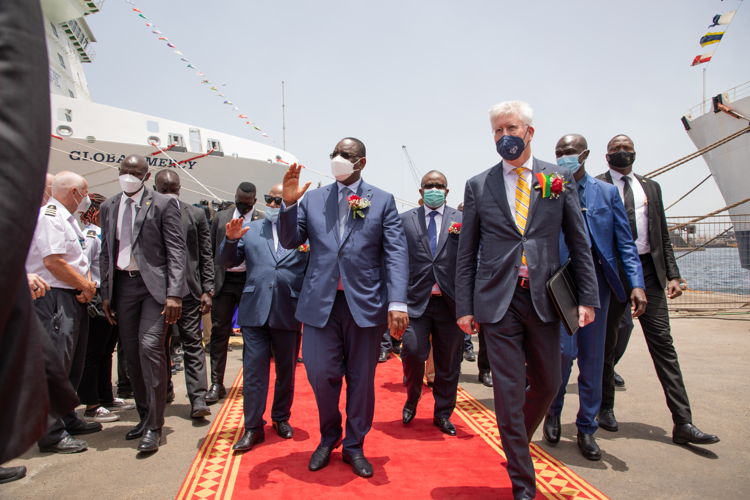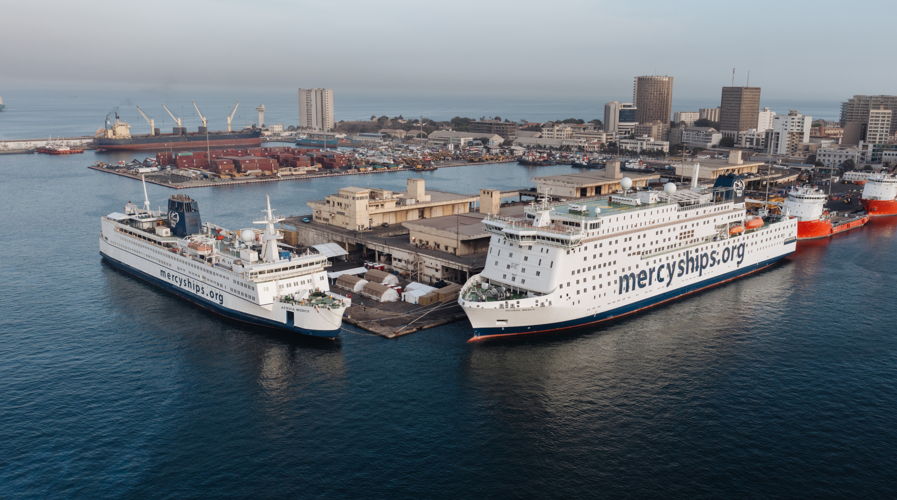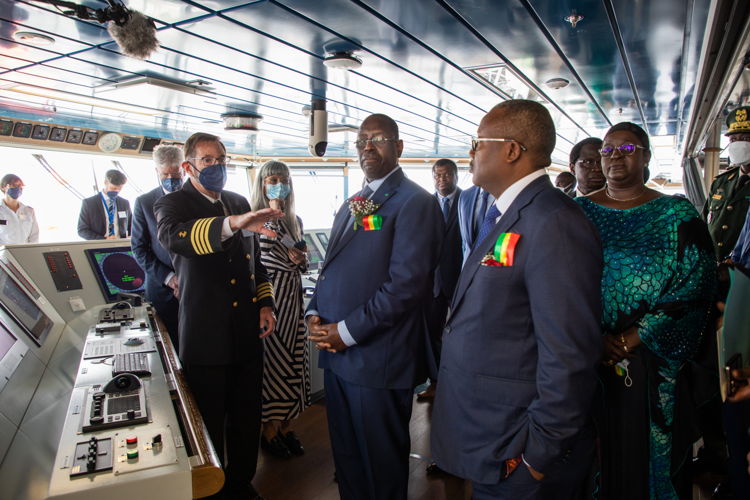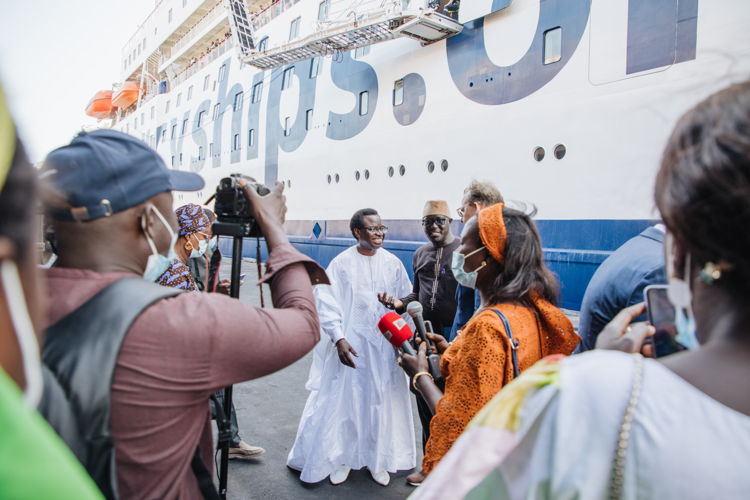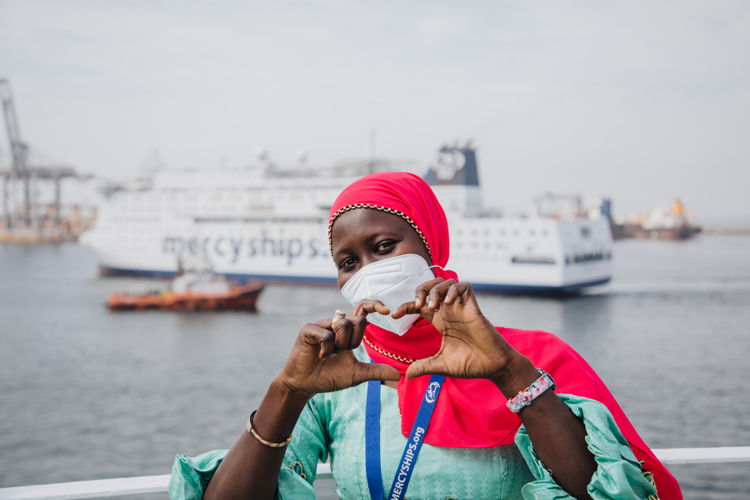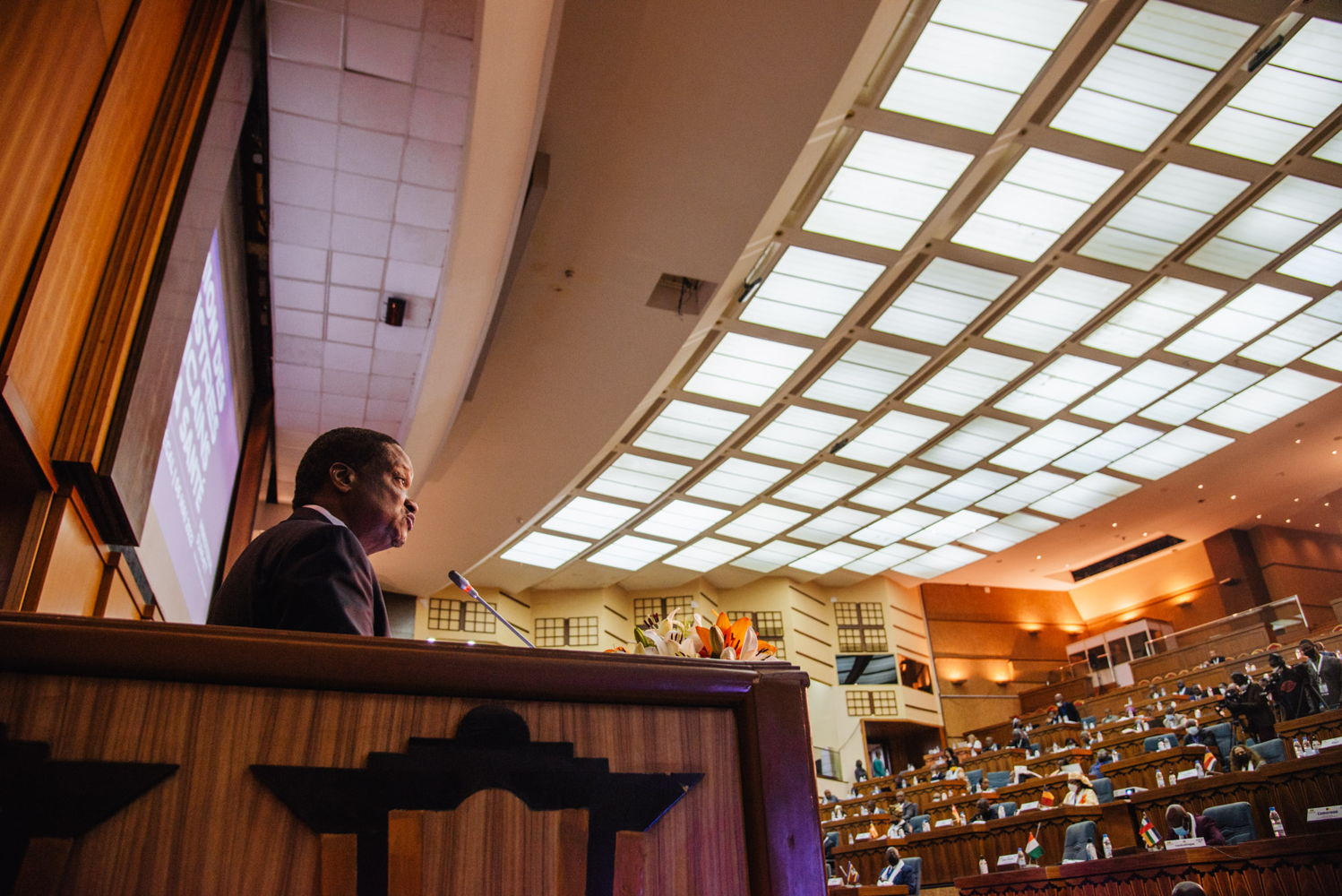Strengthening surgical care in Africa: Several heads of state sign the "Declaration of Dakar" on board the brand new Global Mercy™
Heads of states from multiple African countries gathered on board the newest ship of Mercy Ships. They approved the Dakar Declaration, a strategic road map to improve surgical care for African nations by 2030, where an estimated 93% of sub-Saharan Africa still lack access to safe surgery.
.jpg)
DAKAR, Senegal / LAUSANNE, Switzerland - May 31. 2022 – On May 30, several African heads of state signed the Dakar Declaration, a roadmap to accelerate access to surgical, obstetric and anesthesia care by 2030. The event was held on board the new hospital ship of Mercy Ships, an international humanitarian organization founded in Switzerland in 1978.
H.E. President of Senegal Macky Sall inaugurated the world’s largest purpose-built hospital ship. He also committed to accelerate access to surgical, obstetric and anesthetic care for the nations of Africa. Multiple ceremonies were held to commemorate more than 30 years of service in Africa. Global humanitarian organization Mercy Ships and its partners in Africa used the opportunity to come together in an unprecedented and strategic effort to improve access to safer surgery across the continent through a series of milestone events.
H.E. President Macky Sall greeted the Heads of State, saying,
“We, heads of states present this day, have adopted the Dakar Declaration, which is the result of the meticulous work of our ministers and experts on access to surgical, obstetric and anesthetic care. As President in Office for the African Union, I commit to bring the Dakar Declaration to the summit of heads of state and African governments.”
Assessment of health systems
The Dakar Declaration is an historic agreement following foundational discussions from an International Symposium in Senegal held May 4 – 6, 2022 where experts and ministers of health from 29 African nations met to put forward their commitment to advancing access to surgical, obstetric, and anesthetic care. The result of the Symposium brought a fresh initiative to draft a clear path toward safer and wider access to surgical care in Africa by 2030. Symposium members shared knowledge of their countries’ surgical care situations, addressed gaps and challenges in their national surgical, obstetric and anesthetic plans, and developed new strategies for implementation and capacity building. Prior to the International Symposium, a baseline assessment was carried out with each country and evaluated by a scientific committee.
A first of its kind in Africa, this study has so far collected data about the availability, access, and operation of surgical, obstetric, and anesthetic healthcare systems in 29 of the 47 nations of the World Health Organization (WHO) sub-Saharan African region. The survey provides critical insights into Africa’s healthcare systems from the perspective of district hospitals, particularly in the area of surgery. The WHO will leverage the results of the study to complete the ongoing situational analysis of clinical and hospital services, as well as develop and finalize the regional strategy for strengthening clinical and hospital services in Africa.
The comprehensive preliminary report developed by members of the scientific committee led to the drafting of a roadmap to scale up investment in the strengthening of surgical, obstetric, anesthetic, and nursing care in Africa, in line with the Sustainable Development Goals (SDG). A draft Dakar Declaration was prepared and endorsed on May 30 by the Ministers of Health and approved by visiting African Heads of State.
.jpg) Delegates from 29 countries came together for three days to make plans to further safe surgical, obstetric and anesthetic care in their nations by 2030.
Delegates from 29 countries came together for three days to make plans to further safe surgical, obstetric and anesthetic care in their nations by 2030.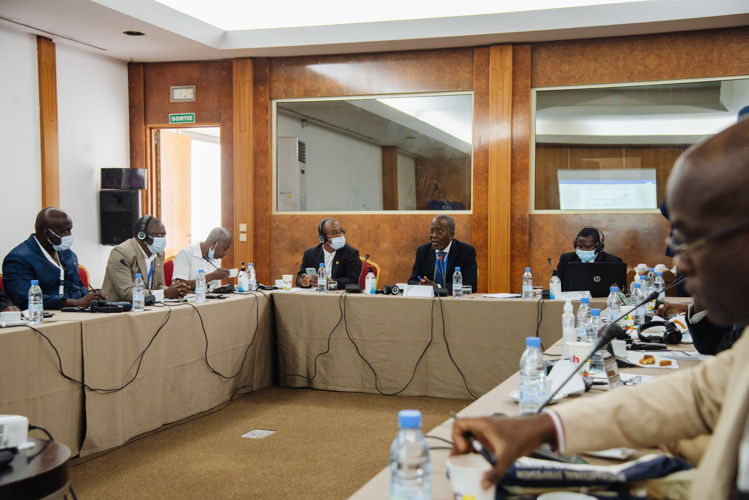 Breakout sessions were held for discussions leading up to the drafting of a declaration to be submitted to heads of state.
Breakout sessions were held for discussions leading up to the drafting of a declaration to be submitted to heads of state.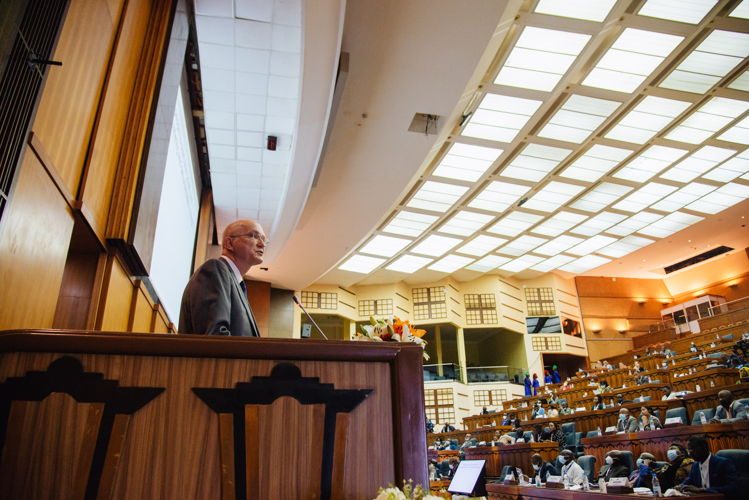 Dr Gary Parker, Chief Medical Officer on the Africa Mercy gives a message of hope from more than 30 years of delivering surgical care with Mercy Ships in Africa..
Dr Gary Parker, Chief Medical Officer on the Africa Mercy gives a message of hope from more than 30 years of delivering surgical care with Mercy Ships in Africa...jpg) Senegal's Minister of Health Abdoulaye Diouf Sarr spoke to the press about the goals of the International Symposium and plans for the Dakar Declaration.
Senegal's Minister of Health Abdoulaye Diouf Sarr spoke to the press about the goals of the International Symposium and plans for the Dakar Declaration.Access to surgical care, an unrecognized challenge
Two thirds of the world’s population, around 5 billion people, do not have sufficient access to operations. This is the terrible assessment of a recent study undertaken by the medical journal The Lancet. This study, Global Surgery 2030, shows that in West and sub-Saharan Africa, 93% of the people are deprived of surgical care. On average, there are two doctors per 10,000 inhabitants, versus 32 in Europe, according to the World Health Organisation. Life expectancy is only 52 years, compared with 74 years in Europe.
The recent tragedy in Senegal reflects the challenges African nations face in providing safe medical care. An accident at a hospital in Senegal on May 25 claimed the lives of 11 newborns. President Macky Sall declared three days of national mourning in memory of the victims of the tragedy at the Mame Abdou Aziz Hospital in Tivaouane.
Mercy Ships, partner of African nations
President of the Union of the Comoros, Azali Assoumani said,
"My country fully embraces the vision of jointly improving access to surgical care. Now is not the time for speeches, but for action. Figures and facts show that our Healthcare is sick. All countries must assume their responsibility so that the support of Mercy Ships can be more effective in improving the health of our populations. As a country, we too often focus mainly on topics like economic growth, unemployment and work, and we forget that nothing can be done without health. The observation that has been made [during the symposium] must challenge us. And everyone must accept that our priorities must be Social, Health and Education. In Africa, we will make sure that Healthcare is a priority. I pay tribute to Senegal and the members of Mercy Ships for their commitment to this mission."
The heads of state came together on board the newest Mercy Ships hospital ship. The Global Mercy™ is 174 meters long, 28.6 meters wide and has space for 200 patients, six operating rooms, one laboratory, general outpatient clinics, a dental clinic and an eye clinic. The hospital decks cover a total area of 7,000 square meters and contain the latest training facilities.
Funded entirely by designated private and institutional donations and legacies from around the world, the Global Mercy is expected to house surgical patients for the next 50+ years. Thousands of lives will be transformed on board. When in full service, the ship will be able to accommodate up to 950 people when docked, including crew members and volunteers from all over the world.
A recording of the ship's inauguration ceremony and the speeches made by several heads of state is available here:
Ressources à disposition des médias
Photos haute définition :
Vidéos (B-Roll) :
